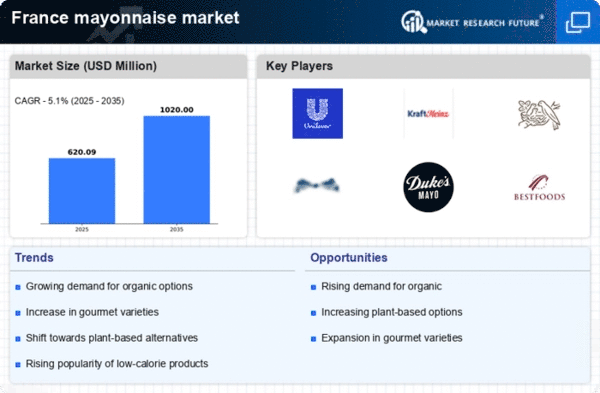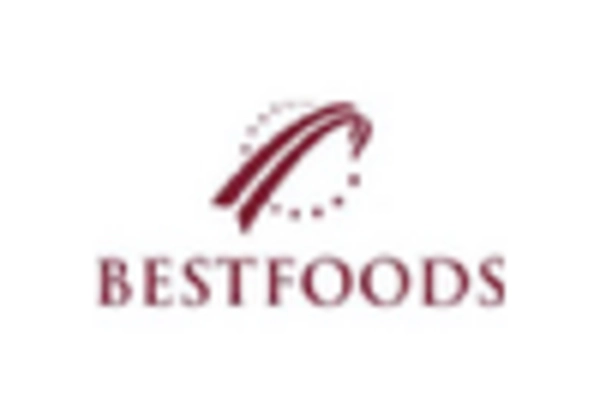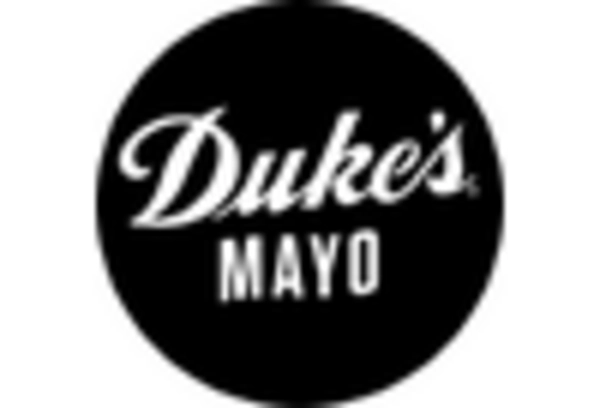Innovative Flavor Profiles
Innovation in flavor profiles significantly influences the mayonnaise market in France. Consumers are increasingly adventurous, seeking unique and gourmet flavors that elevate traditional mayonnaise. This trend has led to the introduction of variants such as garlic, spicy, and herb-infused mayonnaise. Market data suggests that flavored mayonnaise products have seen a growth rate of around 20% in recent years, indicating a shift in consumer preferences. The mayonnaise market is responding by expanding product lines to include these innovative flavors, appealing to a broader audience and enhancing culinary experiences.
Growth of E-Commerce Channels
The mayonnaise market in France is witnessing a significant shift towards e-commerce channels. With the rise of online shopping, consumers are increasingly purchasing food products, including mayonnaise, through digital platforms. This trend is supported by market data showing that online sales of condiments have increased by 25% in the last year. The mayonnaise market is adapting by enhancing online visibility and offering promotions through e-commerce platforms, thereby reaching a wider audience and catering to the growing preference for online grocery shopping.
Culinary Trends and Home Cooking
The resurgence of home cooking has a profound impact on the mayonnaise market in France. As more individuals engage in culinary activities, there is a heightened interest in using quality ingredients, including mayonnaise, to enhance homemade dishes. This trend is reflected in market data, which indicates a 10% increase in sales of premium mayonnaise products. The mayonnaise market is capitalizing on this trend by promoting high-quality, artisanal mayonnaise options that appeal to home cooks seeking to elevate their culinary creations.
Rising Demand for Convenience Foods
The mayonnaise market in France experiences a notable surge in demand for convenience foods. As lifestyles become increasingly fast-paced, consumers seek quick meal solutions that do not compromise on taste. Mayonnaise serves as a versatile condiment, enhancing the flavor of sandwiches, salads, and snacks. This trend is reflected in the market data, indicating that the sales of ready-to-eat meals incorporating mayonnaise have risen by approximately 15% over the past year. The mayonnaise market is thus adapting to this shift by offering convenient packaging options, such as single-serve sachets and squeeze bottles, catering to on-the-go consumers.
Sustainability and Eco-Friendly Packaging
Sustainability concerns are becoming paramount in the mayonnaise market in France. Consumers are increasingly aware of environmental issues and prefer products that align with their values. This has prompted manufacturers to adopt eco-friendly packaging solutions, such as recyclable materials and reduced plastic usage. Recent studies indicate that approximately 30% of consumers are willing to pay a premium for sustainably packaged products. The mayonnaise market is thus focusing on sustainable practices, which not only meet consumer demand but also enhance brand loyalty and reputation.
















